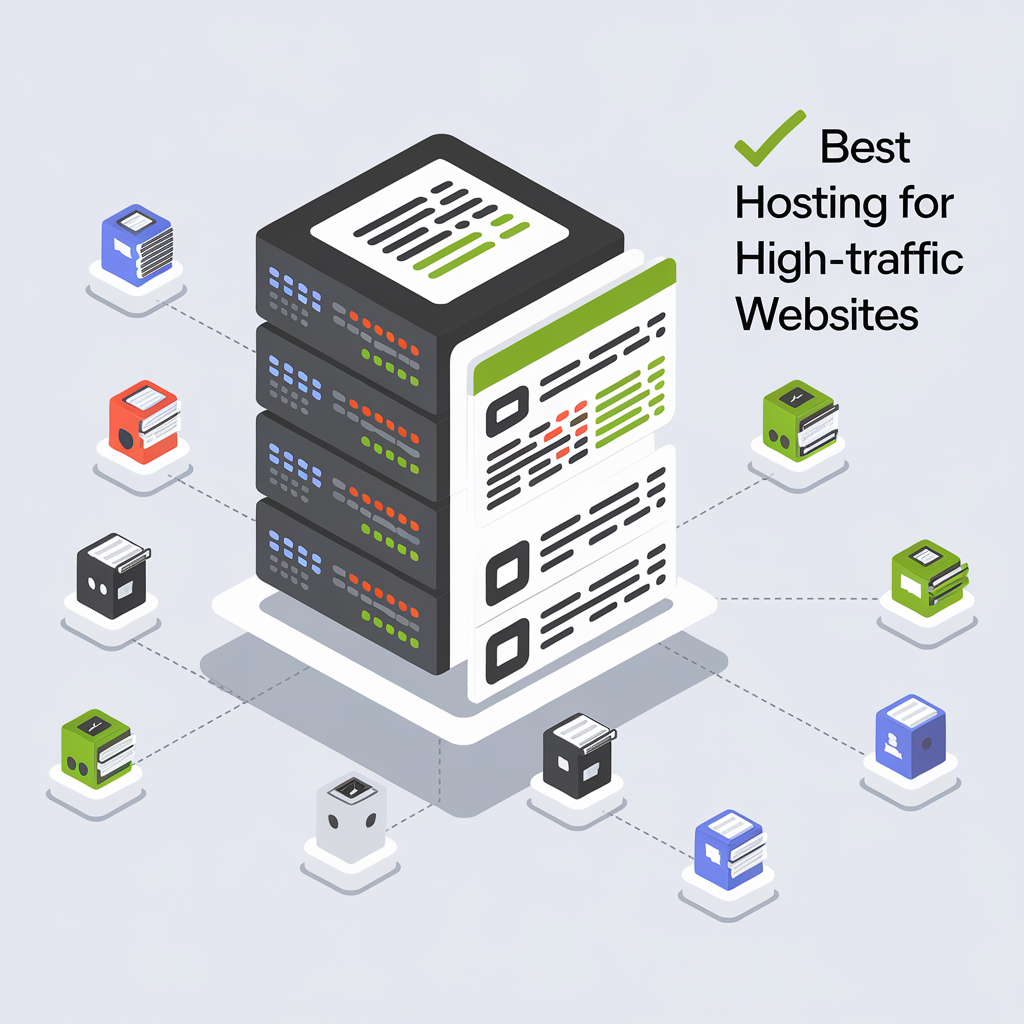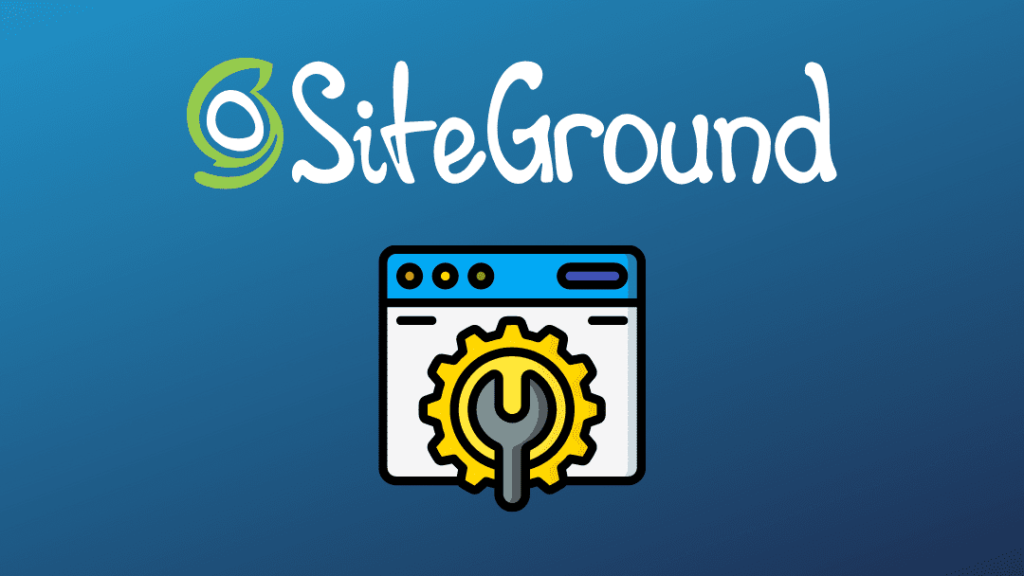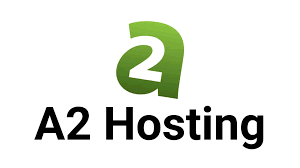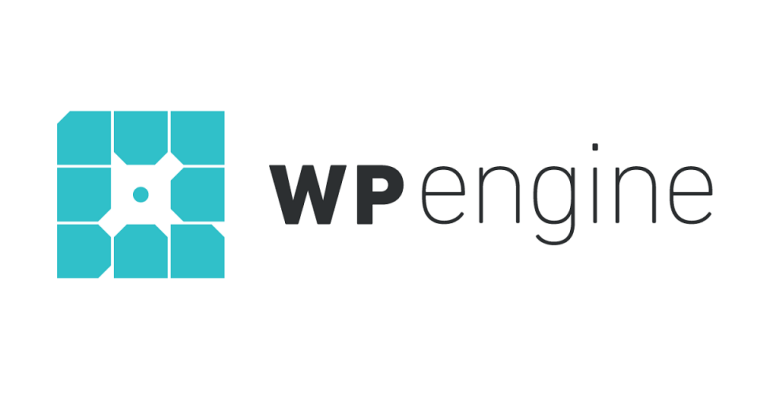Running a high-traffic website is both a blessing and a challenge. While high traffic indicates your website’s popularity and success, it also demands robust hosting solutions to ensure optimal performance, speed, and reliability. Choosing the right hosting provider for a high-traffic website is crucial, as poor hosting can lead to slow loading times, frequent downtime, and a negative user experience.
In this comprehensive guide, we’ll explore the best hosting options for high-traffic websites, including shared hosting, VPS hosting, cloud hosting, and dedicated servers. We’ll also explore key factors to consider when selecting a hosting provider and provide a detailed comparison of the top hosting providers.
Table of Contents
1. Introduction to High-Traffic Websites
2. Why High-Traffic Websites Need Specialized Hosting
3. Types of Hosting for High-Traffic Websites
- Shared Hosting
- VPS Hosting
- Cloud Hosting
- Dedicated Servers
4. Key Features to Look for in Hosting for High-Traffic Websites
5. Top 7 Best Hosting Providers for High-Traffic Websites
- SiteGround
- Bluehost
- HostGator
- A2 Hosting
- InMotion Hosting
- Liquid Web
- WP Engine
6. Comparison of Hosting Providers for High-Traffic Websites
7. How to Choose the Right Hosting for Your High-Traffic Website
8. Tips for Optimizing Your High-Traffic Website

#1. Introduction to High-Traffic Websites
High-traffic websites are those that receive a large number of visitors daily, often ranging from tens of thousands to millions of users. Examples include e-commerce platforms, news websites, online forums, and popular blogs. These websites require specialized hosting solutions to handle the increased load and ensure a seamless user experience.
#2. Why High-Traffic Websites Need Specialized Hosting
These websites have unique hosting requirements, including:
- Performance: Fast loading times are critical to retaining visitors and improving SEO rankings.
- Scalability: The ability to handle traffic spikes without downtime or performance issues.
- Reliability: High uptime guarantees that your website will always be accessible.
- Security: Advanced security features to protect against cyber threats.
- Support: Reliable customer support to resolve issues quickly.
#3. Types of Hosting for High-Traffic Websites
- Shared Hosting: Shared hosting is the most affordable option, where multiple websites share the same server resources. However, it’s not suitable for high-traffic websites due to limited resources and potential performance issues.
Pros:
- Affordable pricing.
- Easy to use.
Cons:
- Limited resources.
- Poor performance for high-traffic websites.
- VPS Hosting: Virtual Private Server (VPS) hosting provides dedicated resources within a shared server environment. It’s a good option for medium-traffic websites, but may not be sufficient for extremely high-traffic websites.
Pros:
- Dedicated resources.
- Better performance than shared hosting.
Cons:
- Limited scalability.
- Requires technical knowledge.
Read Also: SiteGround vs Bluehost vs HostGator
- Cloud Hosting: Cloud hosting uses multiple servers to distribute the load, making it highly scalable and reliable. It’s ideal for high-traffic websites with fluctuating traffic.

Pros:
- High scalability.
- Excellent performance.
- Pay-as-you-go pricing.
Cons:
- Higher cost compared to shared and VPS hosting.
- Dedicated Servers: Dedicated servers provide exclusive use of an entire server, offering maximum performance and control. They’re ideal for extremely high-traffic websites.
Pros:
- Full control over server resources.
- High performance and reliability.
Cons:
- Expensive.
- Requires advanced technical knowledge.
#4. Key Features to Look for in Hosting for High-Traffic Websites
When choosing hosting for a high-traffic website, consider the following features:
- Performance: Fast loading times and low latency.
- Scalability: Ability to handle traffic spikes.
- Uptime Guarantee: 99.9% or higher uptime.
- Security: SSL certificates, firewalls, and malware protection.
- Support: 24/7 customer support.
- Pricing: Transparent and competitive pricing.
#5. Top 7 Best Hosting Providers for High-Traffic Websites
- SiteGround: SiteGround is a premium hosting provider known for its excellent performance and customer support. They offer cloud hosting and dedicated servers, making them ideal for high-traffic websites. Cloud hosting pricing starts at $100/month.

Key Features:
- SSD storage for faster performance.
- Free CDN and daily backups.
- Advanced security features.
- 99.99% uptime guarantee.
- 24/7 expert support.
Pros:
- Exceptional performance.
- Reliable customer support.
- Advanced security features.
Cons:
- Higher pricing compared to competitors.
Read Also: Web Hosting with the Best Uptime
ii. Bluehost: Bluehost is a popular hosting provider offering VPS and dedicated hosting. They’re a good option for medium to high-traffic websites. Pricing for VPS hosting starts at $18.99/month.

Key Features:
- SSD storage for faster performance.
- Free SSL certificate and domain for the first year.
- 99.9% uptime guarantee.
- 24/7 customer support.
Pros:
- Affordable pricing.
- User-friendly interface.
- Reliable performance.
Cons:
- Limited scalability for extremely high-traffic websites.
iii. HostGator: HostGator offers VPS and dedicated hosting, making them a good option for high-traffic websites. Pricing for VPS hosting starts at $23.95/month.

Key Features:
- SSD storage for faster performance.
- Free SSL certificate and website migration.
- 99.9% uptime guarantee.
- 24/7 customer support.
Pros:
- Affordable pricing.
- Reliable performance.
- Free website migration.
Cons:
- Limited scalability for extremely high-traffic websites
iv. A2 Hosting: A2 Hosting is known for its high-speed performance and reliability. They offer VPS and dedicated hosting, making them ideal for high-traffic websites. Pricing for VPS hosting starts at $25/month.

Key Features:
- Turbo servers for up to 20x faster performance.
- Free SSD storage and SSL certificates.
- 99.9% uptime guarantee.
- 24/7 customer support.
Pros:
- High-speed performance.
- Reliable customer support.
- Free website migration.
Cons:
- Slightly higher pricing.
v. InMotion Hosting: InMotion Hosting offers VPS and dedicated hosting, making them a good option for high-traffic websites.
Key Features:
- SSD storage for faster performance.
- Free SSL certificates and backups.
- 99.9% uptime guarantee.
- 24/7 customer support.
- Pricing: VPS hosting starts at $29.99/month.
Pros:
- Reliable performance.
- Excellent customer support.
- Free backups and SSL certificates.
Cons:
Limited data centers.
vi. Liquid Web: Liquid Web is a premium hosting provider offering fully managed VPS and dedicated servers. They’re ideal for extremely high-traffic websites VPS hosting starts at $59/month.

Key Features:
- Fully managed servers with 24/7 support.
- High-performance SSD storage.
- 100% uptime SLA.
- Advanced security features.
Pricing:
Pros:
- Premium performance.
- Fully managed hosting.
- Excellent security features.
Cons:
- Expensive pricing.
vii. WP Engine: WP Engine is a managed WordPress hosting provider offering high-performance hosting for WordPress websites. They’re ideal for high-traffic WordPress websites.

Key Features:
- Optimized for WordPress.
- Free CDN and SSL certificates.
- 99.99% uptime guarantee.
- 24/7 customer support.
- Pricing: Plans start at $25/month.
Pros:
- Exceptional performance for WordPress.
- Reliable customer support.
- Advanced security features.
Cons:
- Higher pricing compared to competitors.
#6. Comparison of Hosting Providers for High-Traffic Websites
Provider Starting Price Hosting Type Uptime Support
- SiteGround offers a $100/month pricing, its hosting type is cloud hosting with a 99.99% uptime and 24/7 customer care support.
- Bluehost offers a $18.99/month pricing, its hosting type is VPS hosting with a 99.9% uptime, high traffic, and 24/7 customer support.
- HostGator offers a $23.95/month pricing for its hosting type is VPS hosting type, with a 99.9% uptime, high traffic, and 24/7 customer care support
- A2 Hosting offers a $25/month pricing for its hosting type is VPS Hosting type, with a 99.9% uptime for high traffic and 24/7 customer care support.
- InMotion Hosting offers a $29.99/month pricing, its hosting type is VPS Hosting with a 99.9% uptime and 24/7 customer care support.
- Liquid Web offers a $59/month pricing, its hosting type is VPS Hosting with a 100% uptime and 24/7 customer care support.
- WP Engine offers a $25/month pricing, its hosting type is Managed WordPress with a 99.99% 24/7customer care support.
#7. How to Choose the Right Hosting for Your High-Traffic Website
When selecting hosting for a high-traffic website, consider the following factors:
Traffic Volume: Choose a hosting type that can handle your website’s traffic.
Performance: Look for fast loading times and low latency.
Scalability: Ensure the hosting can handle traffic spikes.
Security: Choose a provider with advanced security features.
Support: Reliable customer support is crucial for resolving issues quickly.
#8. Tips for Optimizing Your High-Traffic Website
- Use a Content Delivery Network (CDN): Distribute your website’s content across multiple servers worldwide.
- Optimize Images and Videos: Compress images and videos to reduce load times.
- Enable Caching: Use caching plugins or server-side caching to improve performance.
- Monitor Performance: Regularly check your website’s performance and uptime.
- Upgrade Hosting: As your website grows, upgrade to a more powerful hosting solution.
Conclusion
Choosing the right hosting for a high-traffic website is crucial for ensuring optimal performance, reliability, and user experience. Based on our comparison, SiteGround and Liquid Web are excellent choices for high-traffic websites due to their premium performance and reliability that leverages your online business. Bluehost and HostGator are good options for medium-traffic websites, while WP Engine is an ideal choice for high-traffic WordPress websites.
Ultimately, the best hosting provider depends on your specific needs, budget, and traffic volume. Evaluate the features, pricing, and support offered by each provider, and you’ll be on your way to finding the perfect hosting solution for your website.

